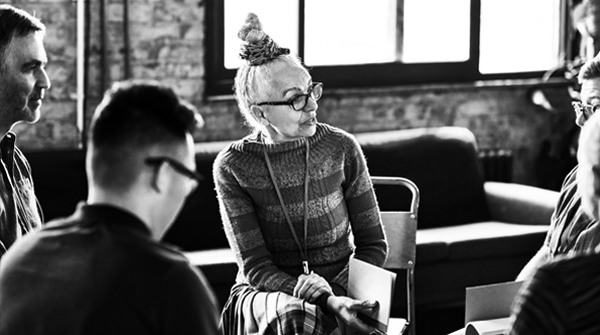The theme of today’s post is the danger of hubris and, as you will read, I speak from personal experience….
There have been many post mortems of the demise of Kids Company. Among the lessons are that, whatever management books tell you, leadership is not a generic quality but is context dependent. The leadership qualities Camila Batmanghelidjh showed to build Kids Company were probably not the skills needed to sustain it beyond a certain size.
The affair also reminded me of an argument made some years ago by David Runciman along the lines that we should be less worried about personal hypocrisy and more about political hypocrisy. The same goes for impropriety. The personal sins of Lord Sewel means his career is over and reputation trashed but I wonder whether the ministers and officials who bundled public money into Kids Company for clearly political purposes and despite evidence and warnings will pay anything like the same price.
But hubris may have been at play. Camila Batmanghelidjh and her Trustees may have felt that they - like the banks - had become ‘too big to fail’. Why otherwise would they have run the organisation on the basis that it could generate deficits with impunity? Last year I spoke to Kids Company about a project they wanted the RSA to help run. The idea seemed to be that three local authorities be persuaded to run full child protection services based on Kids Company principles in parallel to their existing service to see which ones performed better. The sheer impracticability of such an idea (which I was told ministers ‘strongly supported’) told me that Kids Company - for all their commitment and many virtues - had fallen prey to hubris.
A second example seems to be the Government Digital Service. I have been a great fan and supporter of GDS. For many years; they told a great story and grew quickly in size, status and influence. I still think much of this was justified but judging by the spate of recent resignations and the growing number of negative stories about their work, GDS too may have succumbed to its own propaganda. Again, there were warning signs.
Last year senior GDS officials started arguing publicly that the impact of their work was being impaired by the failure of Whitehall to undertake radical institutional reform. That may well be true but when an organisation starts having an elaborate theory about why it is underperforming that blames everyone but itself you can smell hubris in the air.
And what about me? Well, this morning there is an embarrassing story in the Telegraph leading with the headline that I encourage students to ‘stick two fingers up to Oxbridge’. What could have led to such silliness?
I spent the weekend doing an event at the highly enjoyable Wilderness Festival. Just before the Telegraph interview I had been hosting a session in the Forum tent. In keeping with the Festival atmosphere I had led it with a certain amount of humour, playing around with the format and teasing both the speaker and audience.
Coming off stage and being asked to do an interview sitting on the grass with a friendly young journalist asking for my advice to young people who had failed their A levels, I thought I could carry on being iconoclastic and amusing. Oh dear.
The point I was trying to make – which does come across a bit more clearly in the article – is that just as people who fail their A levels shouldn’t give up on an academic future, students who succeed shouldn’t necessarily follow the conventional high achieving academic path.
A few years ago at a private dinner I heard an education minister accuse the Russell Group of ‘rent seeking’ in the way they exploit the fact that lazy employers use top university attendance as a proxy for all round brilliance. The minister said that a lot of Russell Group undergraduate education is less than brilliant. Indeed – as student satisfaction rates show – it looks like some of the less esteemed universities do try harder. Attendance at a non-Russell Group university may not guarantee you a job with a management consultant but you may find yourself in an institution which is more imaginative about how students should be taught.
But, legitimate though such view are, and even though the Telegraph piece contains inaccuracies and exaggeration, it doesn’t justify me going round shouting my mouth off, embarrassing myself and the RSA.
I am 54 and well used to the canny ways of the media but I walked right into this one. It is just when we think we are invincible that we are most likely to shoot ourselves in the foot. Lesson learnt (for now).
Related articles
-
The public are ready to go further and faster on net zero
Anthony Painter
The public are ahead of policy-makers and, indeed, most of the business world. COP26 is an enormous opportunity to catch up. Global leaders should take it.
-
Can progressives ever stop the in-fighting?
Matthew Taylor
Biden's victory has caused the left and moderates to fracture again.
-
Can President Biden bring America together again?
Anthony Painter
There is a long road ahead for the new president.




Join the discussion
Comments
Please login to post a comment or reply
Don't have an account? Click here to register.
The problem is that hubris (vs confidence) like obstinacy (vs persistence) can be identified only after the fact. As Phil Rosenzweig points out in his excellent book Left Brain - Right Stuff, assessing the right degree of confidence is not a matter of comparing our views with some external reality. When it comes to matters where our action can affect outcomes over-confidence is a real benefit. How much? Well that depends on whether one is looking at absolute performance (improving one's running times) or relative performance (beating one's rivals). But as a general rule the best level is the one that inspires us to do our best, which is hard to know in advance and will vary from person to person and situation to situation. All of which challenges the use of "over-confidence" or "hubris" to explain anything...
It must be hard not to fall foul of hubris when your position means that you must often have people around you nodding their heads; not because of what you have said, but because of who you are or because it suits their own ends. In such a situation, how do you know if you're right or wrong? Perhaps we should reintroduce court jesters to keep everyone grounded in reality!
Hubris is, I'm afraid, an unavoidable symptom of our human ability to create an artificial environment or culture around ourselves which is based on our own beliefs. This culture reflects our beliefs back at us, thereby appearing to confirm those beliefs, when all it is, of course, is a self-made illusion. Nemesis, in the form of reality, eventually pays us a visit to restore balance and bang goes our cosy illusion . Sometimes the fault lies with those around us for not challenging us and sometimes it lies with ourselves for deliberately setting out to create such a culture. Yours sounds more like a case of letting your mouth run away with you. Tut, tut.